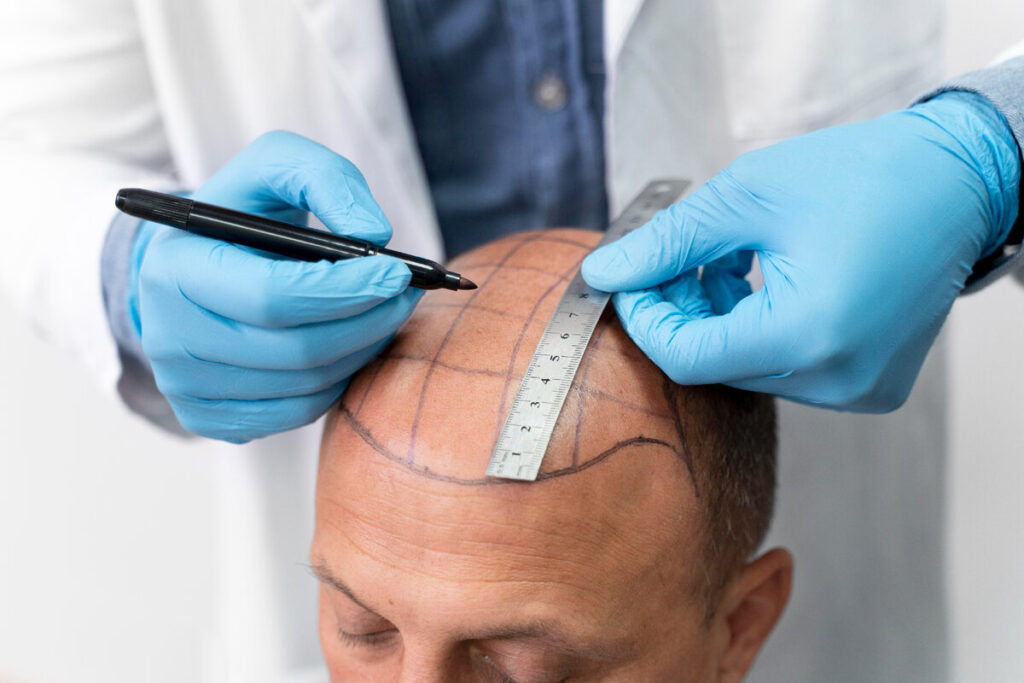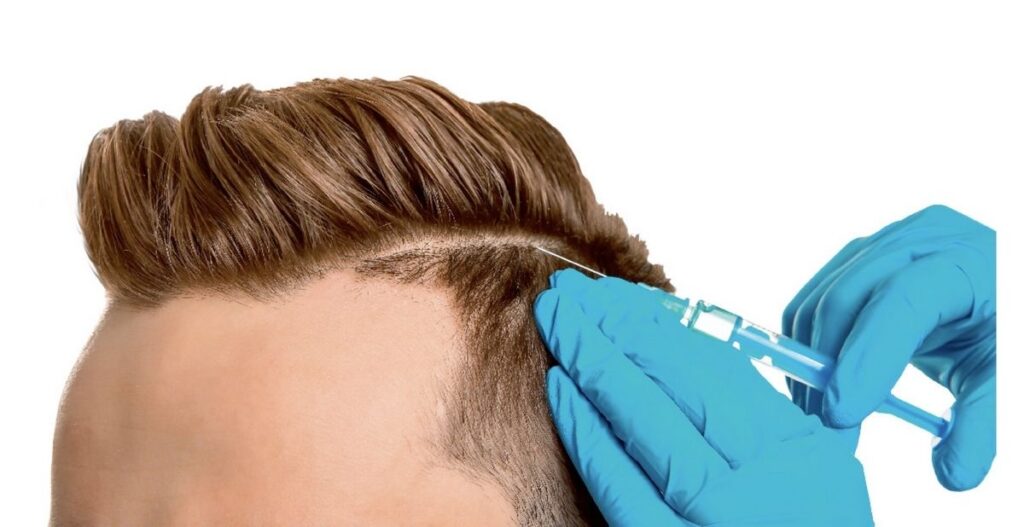
Hair transplant surgery has become a life-changing solution for individuals facing hair loss. Whether due to genetics, hormonal changes, or lifestyle factors, losing hair can significantly impact self-esteem. For those who decide to take control of their hair loss, hair transplantation offers a permanent solution. However, before jumping into the procedure, it’s essential to carefully consider several factors to ensure successful results and a smooth experience.
At our health center, we provide tailored hair transplant surgery services that cater to individuals of all gender identities and orientations. Whether you are cisgender, transgender, or non-binary, we believe that everyone deserves to feel comfortable and confident in their appearance. In this blog, we will explore what should be considered before undergoing hair transplant surgery and how to prepare for the journey ahead.
İçindekiler
1. Understanding Your Hair Loss
The first and most crucial step in considering hair transplant surgery is understanding the underlying cause of your hair loss. Hair loss can be caused by several factors, including:
- Genetics (Androgenetic Alopecia): Often referred to as male or female pattern baldness, this is the most common cause of hair loss.
- Hormonal Changes: Hormonal fluctuations due to pregnancy, menopause, or hormone therapy (especially in transgender individuals) can lead to hair thinning.
- Medical Conditions: Autoimmune disorders like alopecia areata, thyroid problems, or scalp infections can also cause hair loss.
- Lifestyle Factors: Stress, poor nutrition, or certain medications can contribute to hair loss.
Before undergoing surgery, it’s important to work with a qualified professional who can diagnose the cause of your hair loss and recommend the most suitable treatment. At our clinic, we provide personalized consultations to determine the best approach, ensuring that the root cause of your hair loss is addressed.
2. Setting Realistic Expectations
Although hair transplant surgery can provide remarkable, enduring outcomes for some people in their later stages, they must realistically set expectations. Factors such as:
- How much hair loss is influenced by the proportion of donor hair present on your scalp, which can range from one degree to several inches.
- The appearance of your hair can be influenced by factors such as the thickness, color or curl of that hair.
- Younger people may still experience active loss, which could have implications if future thinning took place some time later.
Although a hair transplant surgery can restore fullness and create symmetry, it’s not rumored to be cured overnight. This is a way to enhance your natural hair texture. Our experts can provide guidance on what to anticipate during your consultation, ensuring that you have a distinct understanding of the potential outcomes.
3. Choosing the Right Technique
Among the various forms of hair transplant surgery, there are two main methods:
- FUE is a technique that involves taking out individual hair follicles from the donor area and transplanting them into the recipient area. FUE results in minimal invasiveness, no linear scarring, and faster healing.
- During FUT, individual hair follicles are transplanted from the donor area using a strip of scalp. It permits more grafts in one session, but it still leaves a scar that is mostly linear.
Each approach has its advantages, and the decision is based entirely on your preferences.
4. Timing Your Surgery
Another important factor to consider is the timing of your surgery. It may be advisable to wait until your hair loss has stabilized before undergoing transplant surgery if you are still experiencing hair fall. Those who have recently started hormone therapy as part of their gender transition, or younger people, are particularly affected by this.
Hair transplantation is a common method of feminization or masculinization among individuals with different genders. To achieve your transition goals, it’s crucial to collaborate closely with your surgeon to determine the appropriate time to have surgery. Nevertheless, there is no doubt about this. Transgender individuals can receive tailored consultations at our health center to make hair transplantation a part of their gender-affirming experience.
5. Assessing Your Health
The key to a successful hair transplant is good health. It’s important to ensure that you’re in good physical condition before undergoing hair transplant surgery. Some considerations include:
- Diabetic or blood clotting disorders are among the medical conditions that can make recovery difficult.
- Beware of any medications or supplements you may be taking and tell your surgeon about them as they may affect the outcome of the surgery or recovery.
- The risk of blood loss and a decrease in healing can be associated with smoking and alcohol consumption, which should be stopped within 2-4 weeks before surgery.
- A thorough health evaluation will be conducted by our team before your surgery, to ensure that you’re in the best possible condition for the procedure.
6. Preparing Mentally and Emotionally
Hair transplantation is not just about the physical aspect, it’s also a psychological alter. Hair loss can be a source of great sadness, and the prospect of having surgery to restore your hairline may cause you to feel anxious or excited. You need to mentally and emotionally prepare yourself for the.
Discuss your concerns with your physician or seek advice from loved ones. With compassion and empathy, we ensure that you feel at ease with us at our clinic, and we want to help you through this experience.
7. Financial Considerations
Investing in a hair transplant is both expensive and detrimental to your physical appearance and confidence. It’s important to consider the cost as well. Cost can be influenced by factors such as the number of grafts, technique used, and the experience of the surgeon.
Hair transplant surgery prices in Turkey are typically lower than those in other countries, while still maintaining high quality standards. Our clinic provides high-quality care at a very competitive price. Our team works with you to create a treatment plan that is both affordable and effective.
8. Post-Operative Care
Understanding the post-operative care before undergoing hair transplant surgery is crucial. While recovery is typically quick, it’s important to pay close attention to what your doctor says. This may include:
- Reducing physical activity for a few days.
- Maintaining optimal scalp hygiene and utilizing any prescribed treatments.
- Using loosely fitting scarves or hats to shield the area being treated.
- Avoid direct sunlight on the scalp.
- Following our surgery, we offer comprehensive post-operative care plans to ensure a smooth recovery and long term results.
Your Hair Transplant Journey
Undergoing hair transplant surgery can dramatically increase your confidence. Our health center is a place where people of all genders and backgrounds can come together to experience the benefits. Our team of experts can help you with all your hair-related concerns, from identifying the origin to achieving a more attractive appearance.
For more information about hair transplant surgery and our services, visit our website at www.hairtrans.com or learn more about Dr. MFO and our expert team at www.dr-mfo.com/tr/. We look forward to helping you achieve the natural, long-lasting results you desire.


